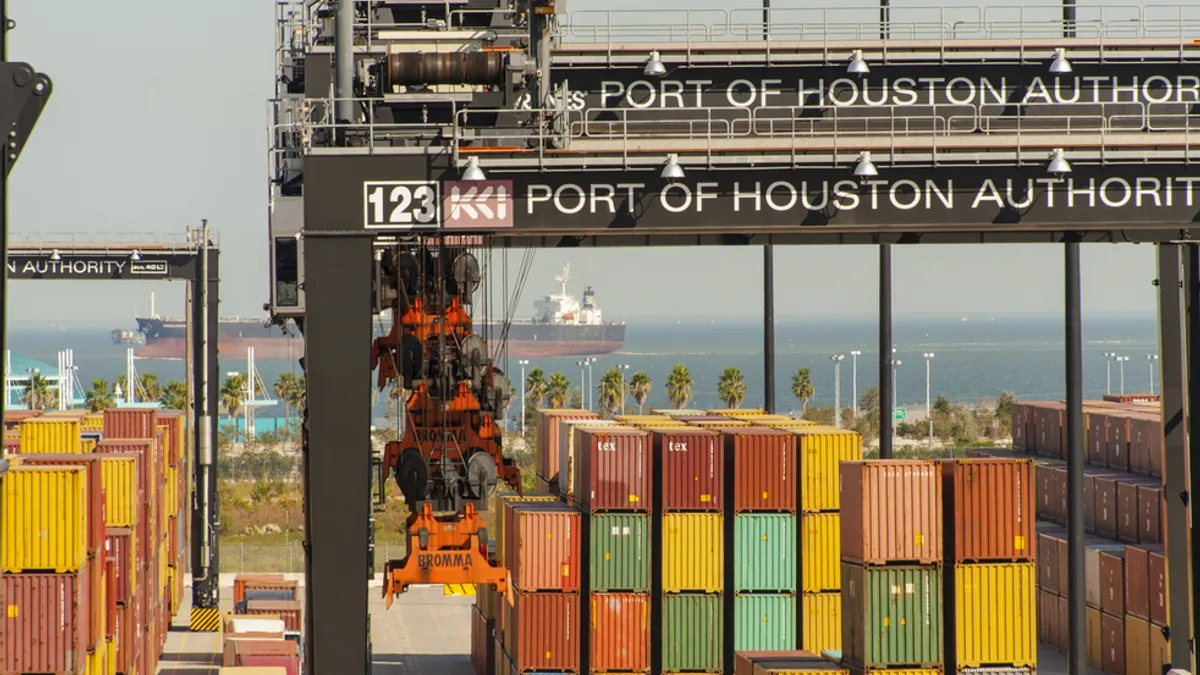Dive Brief:
- Members of the International Longshoremen's Association and the United States Maritime Alliance are meeting this week in hopes of hammering out a long-term contract extension that could benefit East Coast and gulf ports, which would remain in effect until 2024, JOC.com reported.
- If successful, the contract would last longer than the current West Coast contract, set to expire in 2022. The potential new contract is not only of benefit to the ILA, but also to the carriers that depend on longshoremen to load and unload cargo.
- Though the east and gulf coast ports have been free of strikes, the threat did arise last February in part due to issues with non-union workers at the Port of New York and New Jersey.
Dive Insight:
Labor strikes are problematic for both sides, and at times resolved only through government intervention. In some situations, affected groups and associations have been known to speak publicly about the damage longshoremen's strikes cause the economy. Though East Coast labor has been stable, threats due to automation and over-regulation have been issued. And while resolution is possible, legal advisors within the industry recommend that employers avoid strikes whenever possible by paying special attention to workers needs.
Port labor strikes can cost the U.S. economy upwards of $1.9 billion dollars per day, with some ports, such as that of New York and New Jersey, each losing roughly $547 million per day. Strikes also create uncertainty and distrust, with numerous 3PLs either switching coast allegiances, resorting to air freight, or even moving sourcing out of country after the disastrous 2015 west coast disruptions saw work slowdowns and increased congestion.
The good news is that for now, relations between unions and port associations appear to be strong, leading to confidence in establishing long term contracts. If the east coast succeeds in setting standards, the west coast may feel inspired to do the same when it comes time to negotiate.













